Brahmanical ideology and leadership costs thousands of lives
India is currently facing the biggest health crisis in its history. The Covid-19 pandemic has affected over 220 countries, with a global death toll of 3,468,924 deaths as of May 23, 2021. The second wave of Covid-19 has caused unimaginable damage and distress to the Indian people. In addition to the human toll, it has dealt a severe blow to an already failing economy, from which it would take several years to recover - if at all any recovery is possible. Today, India is considered the epicentre for the most active corona cases globally, with 26, 530, 132 positive cases and 299, 296 deaths as of May 23, 2021.
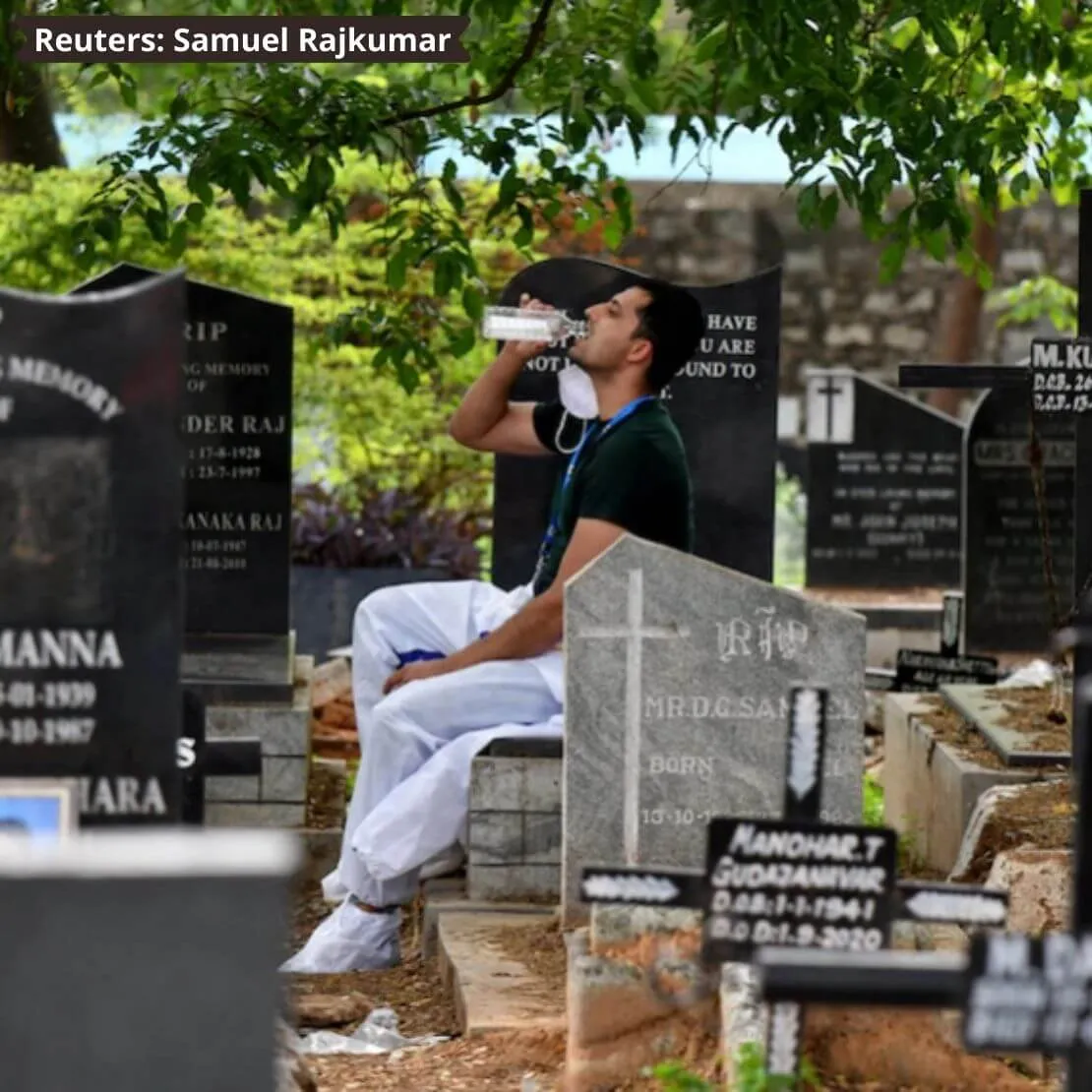
India’s situation is much more precarious and unique than some of the other countries which have faced the Covid-19 crisis. It lacks several crucial fronts, from the crisis in governance and lack of leadership to the failing health care system and collapse of institutions, including judiciary, bureaucracy and media. This is compounded by a crisis in higher education, inflation, inequity and massive unemployment due to the collapse of livelihood sources. Many of these economic problems are not unique to India because of the 2008 global financial recession, which was then exacerbated by the pandemic and shutdown measures taken by many governments worldwide. Apart from having a global impact, it has affected individual countries, states, communities, families, and individuals differently. While countries like the United States, containing nearly a quarter of the total active corona cases, are still floundered in their response to controlling the virus, poorer countries such as India and Brazil have been hit much harder and are on the brink of disaster.
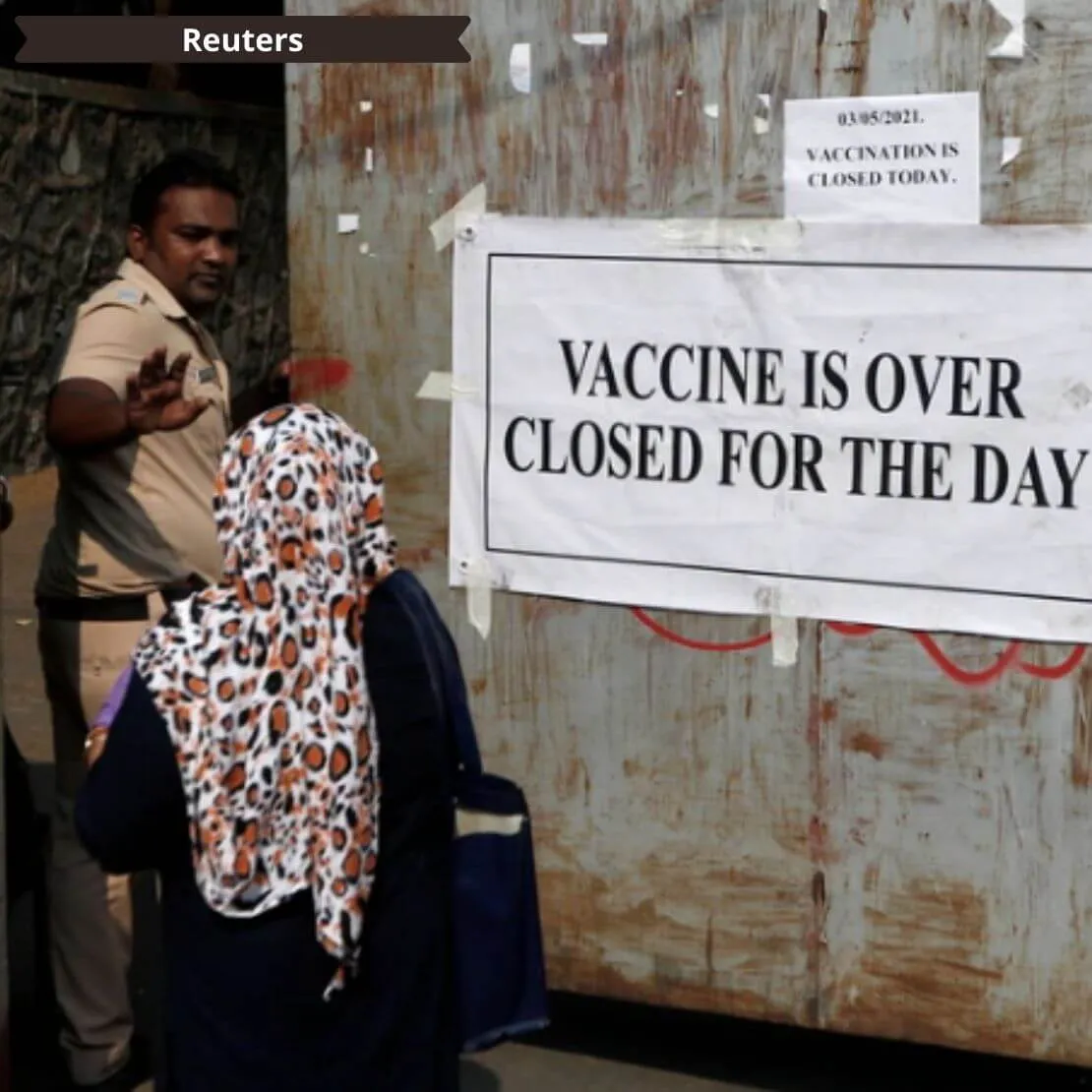
The series of causes that have led to this almost irrecoverable, uncertain future ahead of the Indian people, one has to unravel the ideology and mindset of the dominant ruling classes and the Modi-led BJP government at the centre. It is not sufficient to blame a single person or institution or claim that it is just a collective failure of all institutions. No analysis of the current pandemic can be seen in isolation without considering the ideology that has led India onto this path of destruction. India as a nation was in crisis even before the pandemic, which simply accelerated the speed of the impending disaster and laid bare the simultaneous systemic collapse of all institutions under the current government.
The Modi government was elected to power in 2014. This year was significant in the political imagination of India because it marked the transition from the liberal-democratic socialist government of the Indian National Congress party to the Bharatiya Janata Party (BJP), a right-wing Hindutva ideological party based on the thoughts of Golwalkar-Hedgewar-Savarkar of the Sangh Parivar also known as the RSS. Golwalkar-Savarkar ideology is inspired by the supremacist Nazi ideology based on race purity, ethnic cleansing and superiority of the mythical Aryan race. This ideology, which promotes hatred and violence against Dalits, women, and other minorities whose ultimate goal is to create a Hindu nation, contradicts the modern idea. This creation of a Hindu nation would be based on the contemporary adaptation of the casteist, sexist, Brahmanical text the Manusmriti through undermining the constitution and the power of the people.
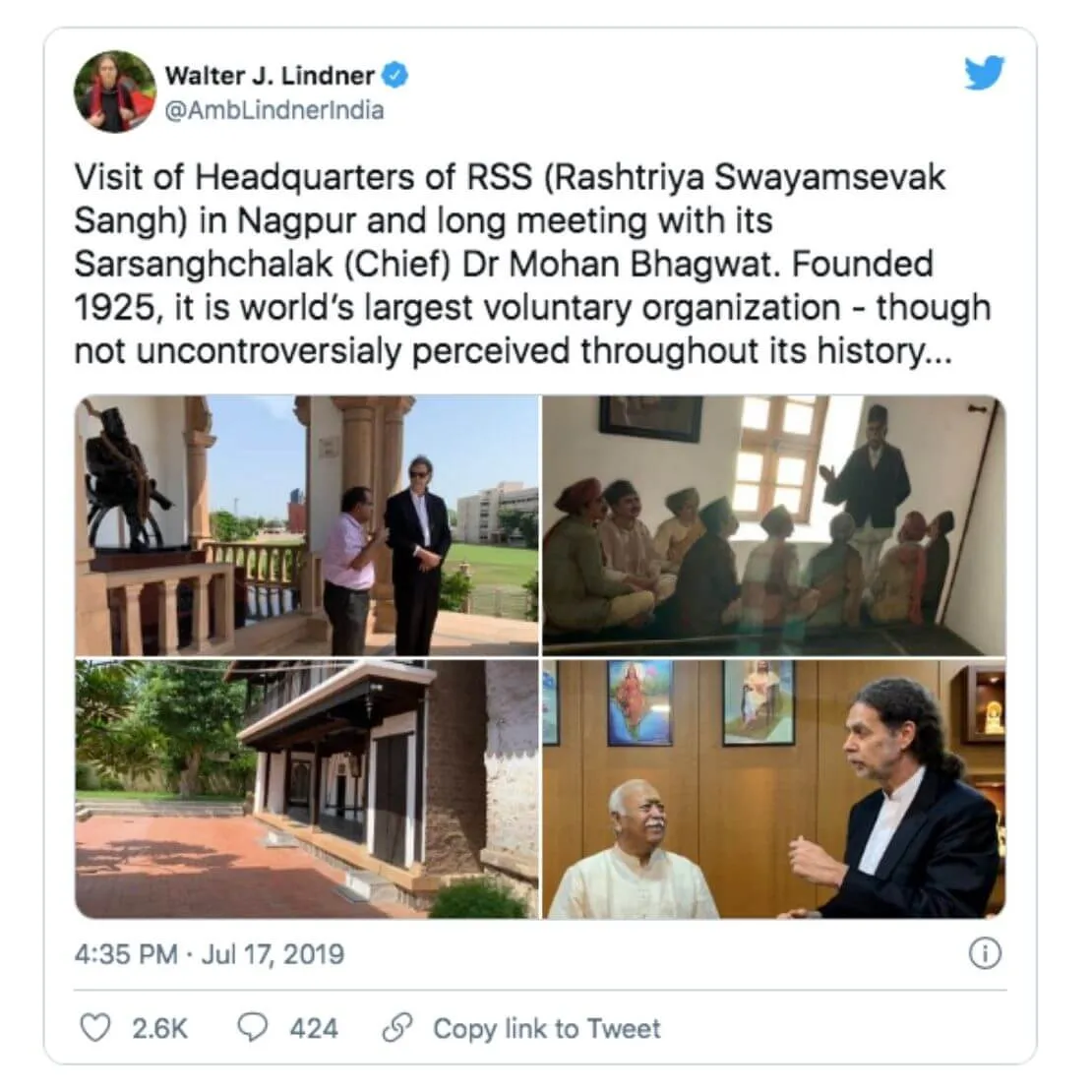
The transition from liberal democracy to the nationalist Hindutva based ideology was supported and welcomed across all sections of the corporate, media, judiciary, the intellectual liberal classes and the so-called civil society, which mainly constituted the 30% of the so-called upper castes led by the 3% of Brahmins at the top.
Contrary to many media claims that the minorities and the lower castes voted for BJP, the BJP continues to be a Brahmin- Bania party given over 76% belong to the Brahmin and the other forward castes. According to a political survey conducted by political think tanks in India like the Centre for the Study of Developing Societies (CSDS) survey in Uttar Pradesh, 82 per cent Brahmins, 89 per cent Thakurs and 70 per cent Vaishya voted for the BJP. Similarly, other surveys are done by India Today-Axis, Trivedi Centre for Political Data at Ashoka University, and many other organisations have shown that most general category castes in the country voted for Modi’s BJP.
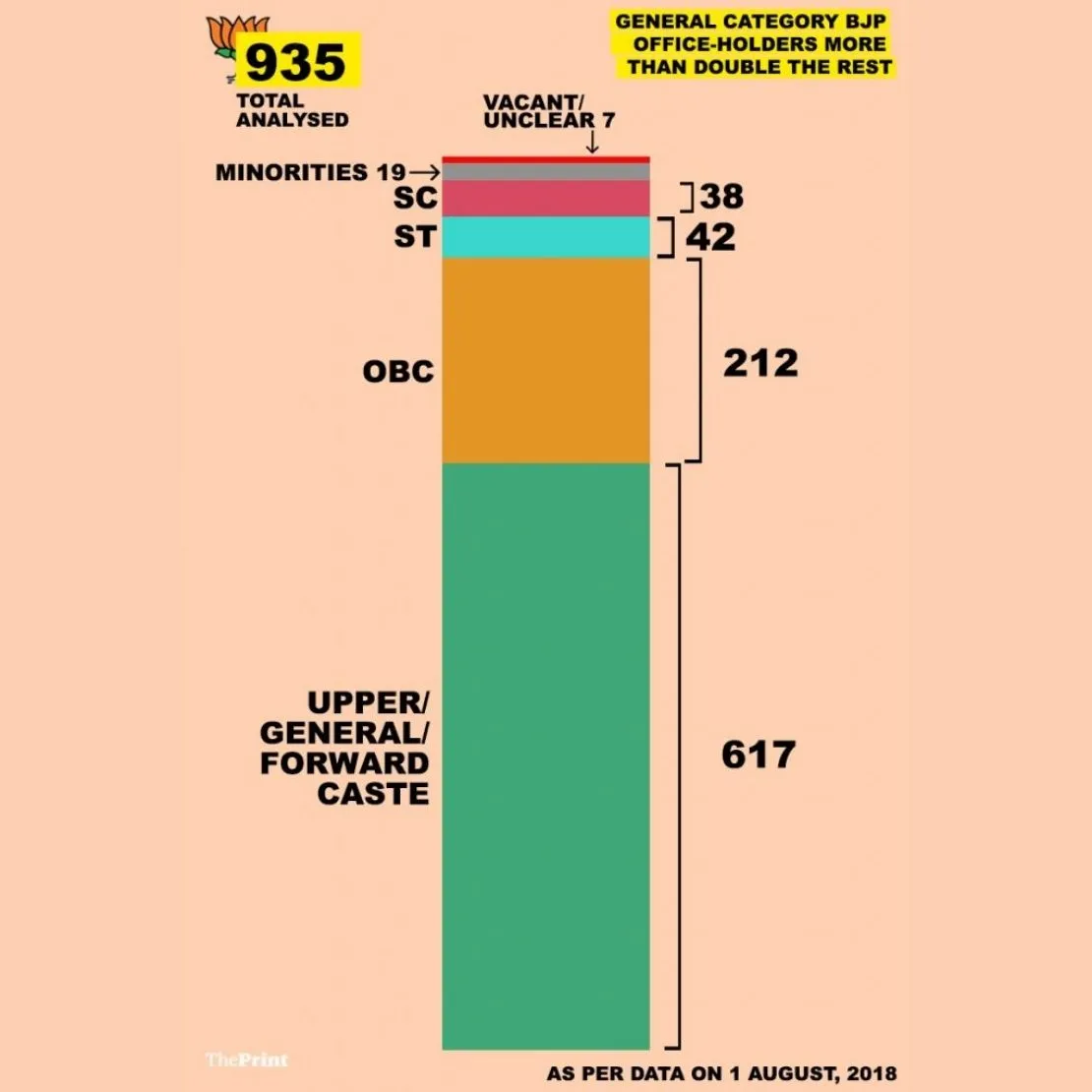
However, upper caste Hindu analysts have falsely invented concepts like “Subaltern Hindu solidarity”, which is not based on any factual evidence, but instead to blame Dalits and lower caste voters for the creation and rise of communal politics in India. In reality, it is the so-called upper castes who have consistently increased the vote share of the BJP, thereby resulting in the rise of communal politics. Despite being the most educated socio-political group, it is outrageous and surprising why this Hindu privileged group supports communal politics, especially the Hindutva kind. As argued by renowned journalist Dilip Mandal, the possible reasons for this could be that the mainstream media and academics are populated mainly by the upper castes Hindus. This very privileged group would not like to be the subject of analysis and scrutiny.
The first five years of the Modi Government was marked by mob lynching of Muslims in the name of cow-protection by 'Gau Rakshaks', rising violence and hate crimes against Dalits and Tribals in BJP states and low conviction rates for any of the violence committed. Unfortunately, despite its anti-minority, anti-Dalit stance, the BJP was elected for a second term in 2019 with an absolute majority. The main reason for their re-election was their divisive election politics and strategies, masterminded by the Home Minister, Mr Amit Shah. Mr Shah, during the last seven years, has masterminded the fall of many democratically elected state governments, altered results either through money and power or through the might of the state machinery and institutions like the Election Commission. During its second term, the BJP continued unabatedly its anti-Dalit, anti-minority policies such as removing the SC-ST quotas in Government jobs, weakening the Scheduled Castes and Scheduled Tribes (Prevention of Atrocities) Act, and bringing in the Citizenship Amendment Act (CAA) and the National Register of Citizens (NRC) specifically targeted at the Indian Muslims through questioning of their citizenship rights based on their religious identity.
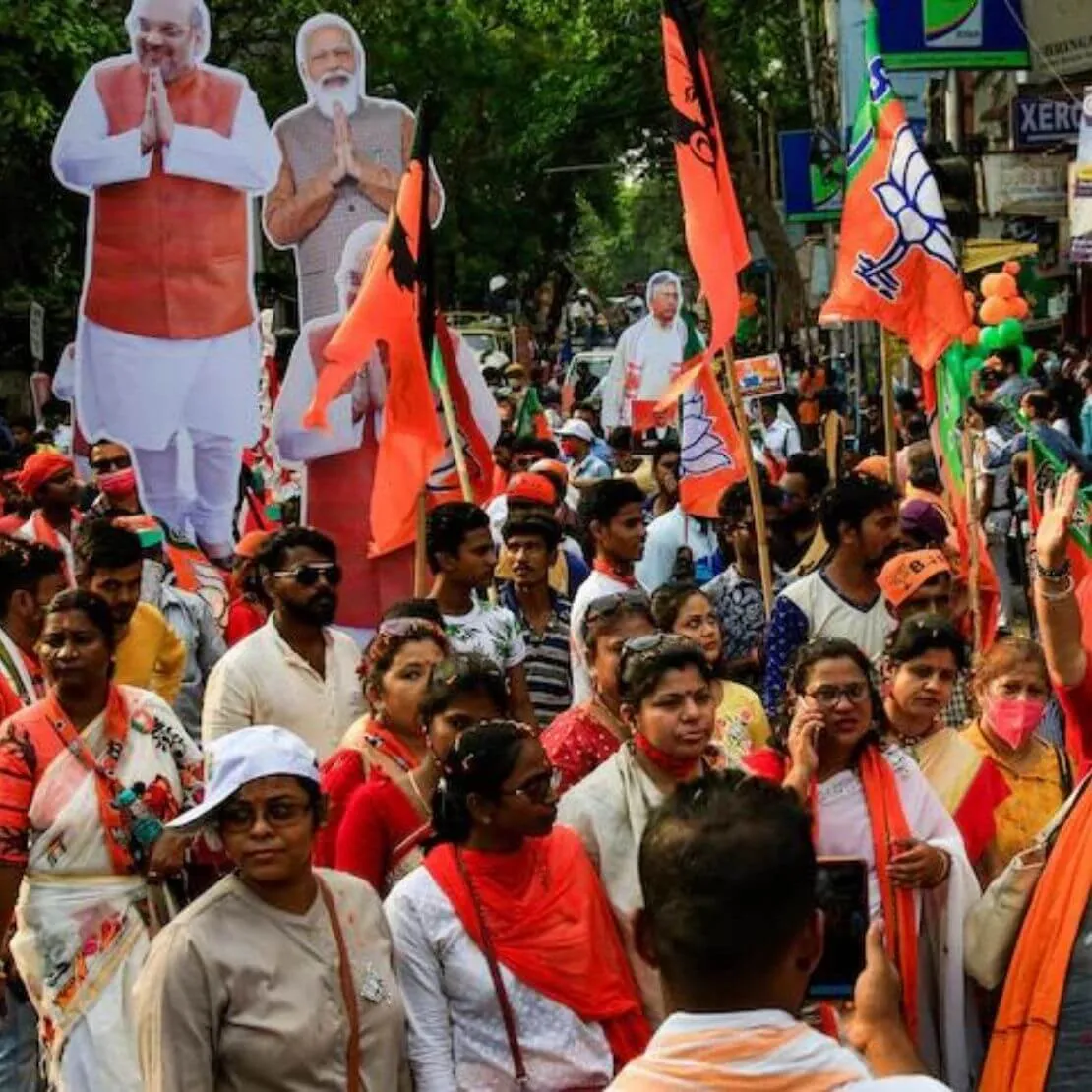
While at the same time trying to appease its chief voter base, the upper castes by bringing in a law to provide 10% reservation to the so-called economically weaker sections (EWS) or poor upper castes. The Intellectual class, particularly those from the marginalised communities, were targeted by the Modi government, reflecting its disgust for anybody who can think and question, particularly any opposing, rational voice. As was evident in the Bhima Koregaon case, as many as 16 persons, including several Dalit and some progressive intellectuals, were imprisoned on false claims and accusations under the Unlawful Activities Prevention Act (UAPA).
While all of this continued, the opposition failed to offer a suitable, effective alternative to the BJP government. The BJP brazenly used money and power to buy candidates and political parties in a corporate style. The only consistent performance of the Modi led BJP government has been maintaining the majority of the seats in the Lok Sabha through undemocratic means; on all other fronts, the BJP has been a complete failure.
Another dimension to this ultra-nationalist, xenophobic ideology is the extreme pseudoscience that it promotes. Paradoxically, the regressive Hindutva ideology assimilates myth, superstition with progress, science and modernity. It is draconian on the part of staunch Hindus and renowned scientists from the Indian Science Congress. They wrongly perceive that all scientific discoveries already existed in the Vedas and other mythical Hindu religious texts.
.webp)
The rise of pseudoscience is not just restricted to public, non-intellectual spaces but has crept into academic institutions, universities, and scientific establishments. In this direction, the BJP led Indian government called for proposals by scientists on the benefits of cow urine, cow dung and milk for treating diseases like cancer. During the first wave of the pandemic in March 2020, PM Modi called on people of the country to bang utensils and clapped hands in support of front line health workers such as doctors and nurses. Every action under the Modi leadership is a kind of tokenism or involves some drama. In February 2021, right before the second wave of the Covid-19 pandemic struck, researchers at the All India Institute of Medical Sciences (AIIMS) Rishikesh were working on the effects of the Gayatri Mantra and yoga to cure Covid-19 patients. These studies were funded by the Department of Science and Technology, Government of India. A cowshed in Gujarat Vedalakshana Panchagavya Ayurvedic Covid Isolation Centre is treating patients with medicines made of cow urine, dung, milk, ghee (butter) and curd.
Further, the health ministry headed by Dr Harsha Vardhan promoted the dubious Coronil. Coronil tablet is made by Patanjali Ayurved company, falsely claimed by Yoga Baba Ramdev as a cure for Covid-19 and endorsed by the AYUSH section of the Government of India for its usage. The Patanjali company also wrongly claimed that this medicine was accepted by the World Health Organization (WHO), which was later denied.
India has become a laughing stock for the international community for using all means of pseudo-scientific experiments, from banging utensils to cow dung bath to drinking cow urine inspired by the tenets of the Brahmanical system in India. Even Hindu NRIs were caught using cow dung cake and buying cow urine in western countries like the USA and UK.
.webp)
The international media has been rightly critical of Modi’s leadership and has single-handedly blamed him for the Covid-19 crisis. Modi’s foreign policy, like his governance, puts him first, then the country. During the first term of the Modi regime, the US-India bilateral relation transformed significantly. The relationship between Prime Minister Modi and President Trump was more than satisfactory for the Right- Wing Hindu fundamentalists and white supremacists. It was hailed as a milestone in the Indo-US relationship. Comparatively, there was a shift in policy and restrictions regarding Indo-US relation with the present Biden administration. The Trump administration’s policies have been premised on “America First,” which curtailed skilled unemployment of Indian workers in the US under H1B visas. India was expecting a favourable bi-lateral agreement between the US and India from Biden and Harris’ administration.
India celebrated the Kamala Harris win as the first Black woman Vice President, as well as the first woman of South Asian origin, who is an inspiration for many women and girls of colour. Even celebrations broke out with people lighting firecrackers, praying at temples and waving posters bearing the picture of VP Kamala Harris at her ancestral village in Tamil Nadu. Before the US election, villagers organised special prayers for Kamala’s win. Even though Kamala has ancestral roots in India and many had predicted positive US-India relations after Kamala’s success, she turned a blind eye to India’s Covid-19 crisis. It was a major embarrassment for all Indians who showed euphoria after Kamala’s victory as an Indian leader.
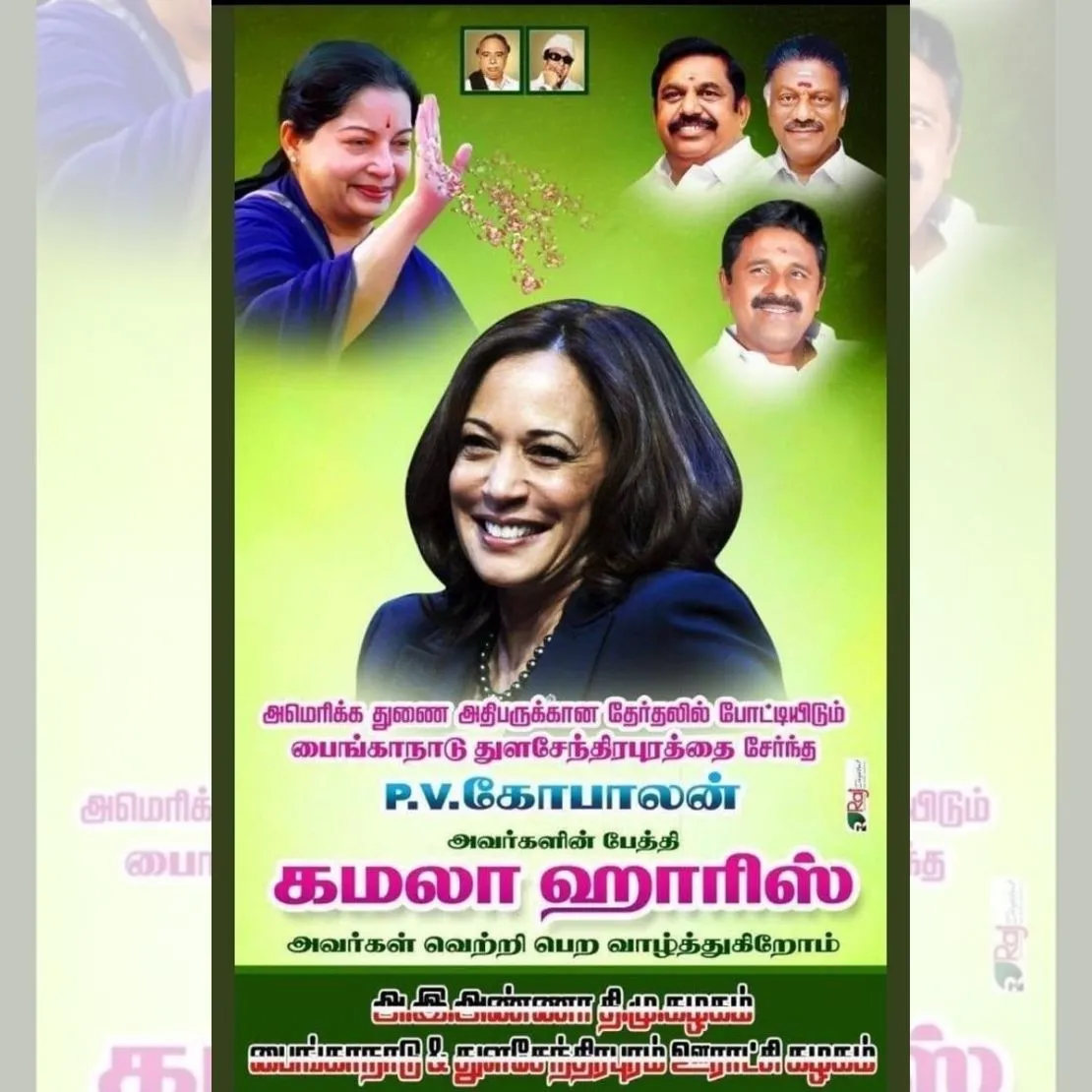
Liberal Indians were expecting positive relations from Biden after Trump’s loss. However, Biden also continued the typical imperialist policy of “America first” by banning necessary raw materials to make Covid-19 vaccines. Later, after much criticism, USAID has provided India with oxygen cylinders, PPE kits and other medicines like Remdesivir, which were insufficient to prevent unimaginable deaths. Moreover, despite having large numbers of Indian-Americans in the Biden Administration, they seem useless for India’s crisis when countries like China have come forward to support India.
It is essential to ask: does the Biden –Harris win make any difference to India at the time of its worst health crisis? Should India forgive Kamala Harris’ for her indifference to the crisis?
The worst is not yet over; this Covid-19 crisis will eventually lead to further economic distress and recession for people already burdened by large-scale unemployment, inflation, and poverty. India and the Indian people will have many lessons to learn from the current crisis. Crucial questions to ask include what their leaders represent -- do their ideologies conflict with democratic values, do they stand for all people or just a few sections? Divisive politics and politics of religion and caste do not work in times of crisis and national emergency.
We, the people, need to decide whether we need a leader at the helm who is self-obsessed, power-hungry, lacks a clear vision and comes from a Brahmanical /Hindutva ideology rooted in hatred of ‘the other’?
In a democracy, it is true that “the government you elect is the government you deserve”. When priorities are misplaced, and people are blinded by ideology, their ability to think logically, scientifically and rationally is greatly diminished. People who voted for the BJP voted for a Hindutva ideology rooted in Brahmanical fanaticism, superstition and blind religiosity, and not progress, growth and development.
This grave mistake of choosing a nationalist ideology based on Hindu fundamentalism has led India on to a path of destruction. People need to take back power, decide for themselves what and who they vote for, and the pandemic has provided that opportunity for reflection.